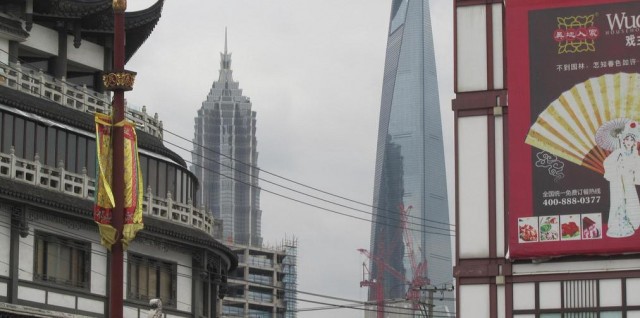I Escaped the Permatern Life By Leaving the West
by James Griffiths

Last summer, I wrote about how being an intern in the U.K. sucks too. Nevertheless, from June and September 2012 I applied for over 60 internships and other entry-level journalism positions in the U.K. Nearly all of these positions were either unpaid or (extremely) low-paid. If I hadn’t made one important decision that September, I’d probably still be begging for internships, and I’d either be living with my parents or on the meager benefits the U.K. government begrudgingly gives my age cohort.
So what changed? I stopped looking for jobs in the U.K. and started looking for jobs in the whole world.
Companies in recession-blighted Western Europe and America are overwhelmed with job applications every day. I’ve spoken to numerous friends and acquaintances who work in HR and readily admit that lots of applications are discarded almost on site — the slightest error or odd turn of phrase being enough to earn a place in the trash. Even those applicants who do get their resumes in front of the people that matter are competing against dozens if not hundreds of similarly qualified job hunters.
Meanwhile, countries in the developing world and rising superpowers such as China and Brazil are screaming out for young talent. The ability to speak English may not get you in fields such as marketing and PR as it once would, but when it comes to journalism and reporting, publications are nearly always on the lookout for capable native speakers who know how to grammar good. And, though you might not realise it (I didn’t), there are a lot of English language publications in non-English speaking countries.
I currently work as an editor at Shanghaiist, which is part of the Gothamist network and one of the largest English language blogs about China. I got this job in part because I was willing to relocate to Shanghai for it, and nothing impresses employers more than the fact that you’d move across the world to get the job. I don’t make a lot of money, but I live a comfortable life, get to write for a living, and am several rungs higher up my career ladder than I would be if I were still bouncing from internship to internship in the U.K.
Beyond the fact that employers are actually hiring, there are numerous other reasons to live abroad. The cost of living is very low, I live in one of the most expensive cities in China and yet I bought a month’s worth of groceries the other day for around £15 ($25). If you’re lucky enough to work in a field that lends itself to freelancing, you can supplement your wages by selling work back in your home country. If I sell one 1,500-word piece to a British or American publication, I make roughly a third of my Chinese monthly wage.
There’s also the wow factor of having lived overseas, which is invaluable for when you do start looking for jobs back in your home country. There’s a massive difference between blithely saying you’re a “self starter” and detailing how you moved to Sao Paolo to work for a magazine or taught English in Beijing while working as a freelance journalist.
Not all internships are created equally, and I’m by no means advocating for people to turn down the opportunity to work at the Financial Times or Gawker (or the equivalent in your industry) just to go gallivanting in South America or the Middle East. But if you reach the point where you’re applying to work for little or no money for bottom of the barrel employers just to pad out your resume with the necessary “experience”, then stop looking at local employers, and go East.
James Griffiths is a senior editor at Shanghaiist. He has written for publications in the U.K., U.S., and China. Follow him on Twitter: @jgriffiths. Photo: phileole
Support The Billfold
The Billfold continues to exist thanks to support from our readers. Help us continue to do our work by making a monthly pledge on Patreon or a one-time-only contribution through PayPal.
Comments